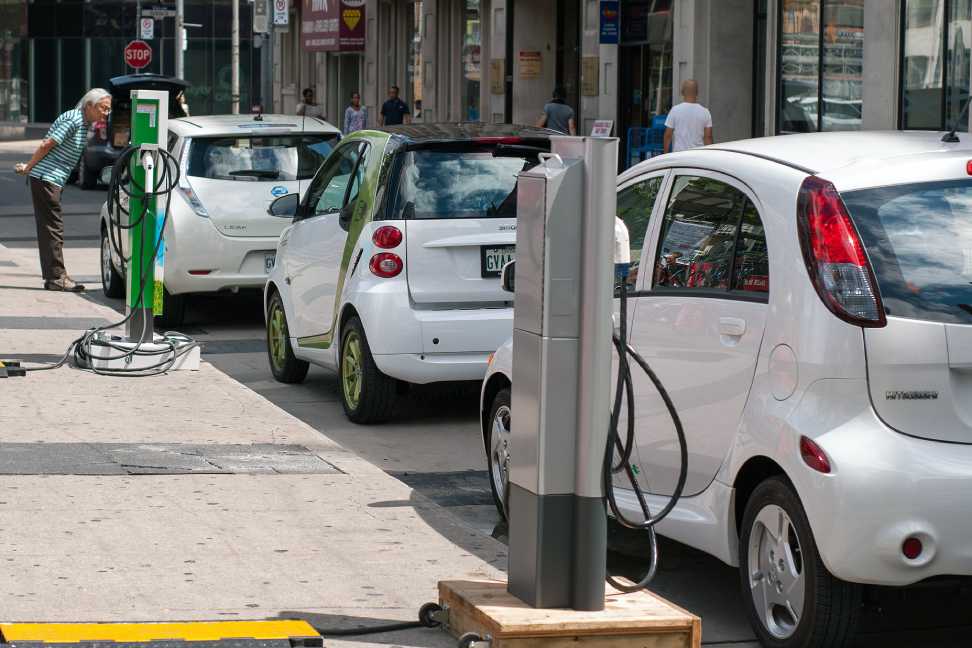The roar of gas engines might have defined automobiles for a century, but a quiet revolution is underway. Electric cars, once a futuristic novelty, are rapidly becoming a mainstream reality. But what exactly are they, and how do they work? This blog dives deep into the world of electric vehicles (EVs), exploring their technology, benefits, and potential impact on the future of transportation.
Under the Hood: Demystifying Electric Power
Unlike traditional gasoline-powered cars, electric vehicles use electric motors powered by onboard batteries. These batteries store energy, typically in the form of lithium-ion cells, which is then used to propel the vehicle. Unlike an internal combustion engine, which converts fuel into energy through a series of controlled explosions, electric motors run smoothly and silently, with zero tailpipe emissions.
Types of Electric Vehicles: Choosing Your Charge
Not all EVs are created equal. There are three main types, each catering to different needs and driving habits:
- Battery Electric Vehicles (BEVs): These are the purest form of EVs, relying solely on battery power for propulsion. With ranges approaching 500 kilometers on a single charge, BEVs are increasingly suitable for daily commutes and road trips. Examples include the Tesla Model 3, Nissan Leaf, and Hyundai Kona Electric.
- Plug-in Hybrid Electric Vehicles (PHEVs): These offer a blend of electric and gasoline power. PHEVs have a larger battery and an electric motor, allowing for emission-free driving for shorter distances. When the battery depletes, a gasoline engine takes over, extending the overall range. The Toyota Prius Prime and Chrysler Pacifica Hybrid are popular PHEV choices.
- Fuel Cell Electric Vehicles (FCEVs): These utilize hydrogen fuel cells to generate electricity, powering the electric motor. While FCEVs offer fast refueling times and long ranges, they are currently less common due to limited hydrogen infrastructure. The Toyota Mirai and Hyundai Nexo are leading examples of FCEVs.
Charging Up: Fueling the Future
Unlike gasoline, electricity requires a different approach to “refueling.” EVs can be charged at home using dedicated charging stations, typically overnight when electricity rates are lower. Public charging stations are becoming increasingly widespread, offering various charging speeds depending on the location and equipment. Fast-charging stations can replenish an EV’s battery in 30 minutes or less, ideal for long journeys.
Beyond Emissions: The Benefits of Going Electric
The most apparent benefit of EVs is their environmental impact. By eliminating tailpipe emissions, they contribute significantly to cleaner air and reduced greenhouse gas emissions. Additionally, EVs offer:
- Lower operating costs: Electricity is often cheaper than gasoline, and EVs require less maintenance due to fewer moving parts.
- Quieter driving experience: The lack of engine noise creates a more peaceful and enjoyable driving experience for both passengers and pedestrians.
- Improved performance: Electric motors deliver instant torque, resulting in smoother acceleration and quicker responsiveness.
- Technological advancements: EVs are at the forefront of automotive innovation, offering cutting-edge features like advanced driver-assistance systems and connected car technologies.
Challenges and Considerations: The Road Ahead
While the future of EVs looks bright, there are still some challenges to address:
- Range anxiety: Although ranges are improving, some drivers might experience concerns about running out of charge, especially on long trips. Public charging infrastructure needs further development to alleviate this concern.
- Battery costs: Battery technology is constantly evolving, but upfront costs still present a barrier for some buyers. Government incentives and falling battery prices are helping to bridge this gap.
- Charging infrastructure: While expanding, public charging infrastructure needs to grow further to support widespread EV adoption, especially in rural areas.
Electrifying the Future: A Sustainable Transformation
The rise of electric vehicles marks a significant shift towards a more sustainable transportation system. With their environmental benefits, lower operating costs, and technological advancements, EVs are not just the future, they are the present. As battery technology improves, charging infrastructure expands, and costs decrease, electric vehicles are poised to revolutionize the way we travel, offering a cleaner, quieter, and more efficient driving experience for all.
Feature image source:- http://tinyurl.com/bdfjv7t7

